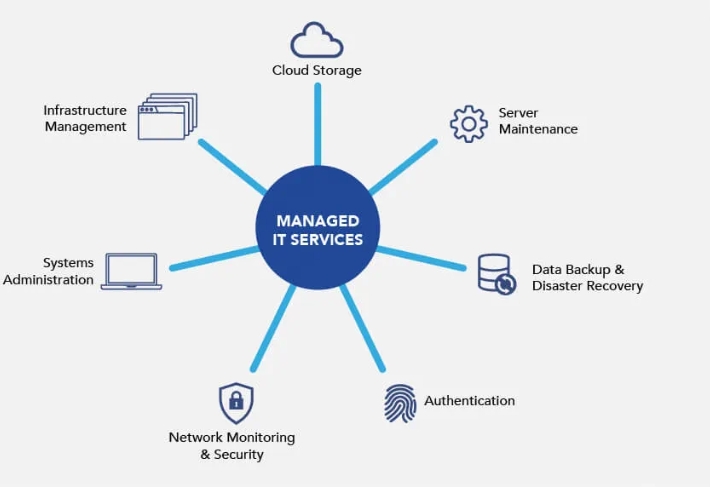When it comes to running a successful business, understanding business finance is crucial. From managing cash flow to ensuring accurate tax filings, the financial health of your business directly impacts its growth and sustainability. One key to staying on top of your financial game is hiring a business accountant who can provide expert guidance and ensure your finances are always in order.
What is Business Finance?
Business finance refers to the management of a company’s financial resources, which includes budgeting, forecasting, managing investments, and overseeing expenses. It involves making strategic financial decisions that drive growth and profitability while maintaining stability.
Effective business finance allows you to:
- Plan for growth by understanding your cash flow and profits.
- Monitor performance and make data-driven decisions.
- Ensure compliance with tax laws and regulations.
- Secure funding from investors, banks, or other financial institutions.
The Role of a Business Accountant
A business accountant plays a vital role in managing the financial operations of your business. While some small business owners may handle their own finances initially, as your business grows, the complexity increases, and a skilled accountant becomes invaluable.
Key responsibilities of a business accountant:
- Financial Reporting: Creating detailed financial statements (income statements, balance sheets, cash flow reports) that give you insights into your business’s financial position.
- Tax Management: Ensuring that your business complies with tax laws by preparing and filing taxes on time, while maximizing deductions and credits.
- Budgeting and Forecasting: Helping you create a realistic budget and financial forecast to plan for future growth and expenses.
- Cash Flow Management: Monitoring and improving cash flow to ensure you have enough liquidity to meet operational expenses and avoid cash shortfalls.
- Risk Management: Identifying and mitigating potential financial risks that could impact the stability of your business.
Why Your Business Needs an Accountant
While DIY accounting might work for small businesses, the growing complexity of financial regulations, tax laws, and cash flow management makes hiring a business accountant a wise investment. Here’s why:
- Expertise in Financial ManagementBusiness accountants have the knowledge and skills to manage complex financial tasks. Their expertise ensures accurate financial records, which can help you avoid costly mistakes.
- Time-SavingFinancial management can be time-consuming, especially if you are focusing on business operations. By hiring an accountant, you free up your time to concentrate on growing your business.
- Strategic Financial GuidanceAccountants are not just number crunchers—they are financial strategists. They can help you make informed decisions, improve profitability, and plan for the future.
- Avoiding Legal IssuesCompliance with tax laws is critical for business success. A qualified accountant ensures that your business meets all regulatory requirements, reducing the risk of audits or penalties.
How to Choose the Right Business Accountant
Choosing the right business accountant for your needs can make a significant difference in your financial success. Here are a few tips to help you make the right choice:
- Experience in Your Industry: Ensure the accountant has experience working with businesses similar to yours.
- Certifications and Credentials: Look for certified professionals such as Certified Public Accountants (CPAs) or Chartered Accountants (CAs).
- Compatibility with Your Goals: The accountant should understand your business goals and be able to provide financial advice tailored to your needs.
- Technology Proficiency: As more accounting functions move online, ensure your accountant is proficient with accounting software and tools.
Key Business Accounting Services to Look For
When hiring an accountant, ensure they offer these essential services:
- Bookkeeping ServicesRegular recording and categorizing of transactions, ensuring you have accurate financial records at all times.
- Financial Statement PreparationCreating income statements, balance sheets, and other reports to help you monitor your business’s financial health.
- Tax Planning and FilingHelping you minimize tax liabilities, stay compliant, and file taxes on time.
- Cash Flow ManagementAnalyzing your cash flow to ensure you have enough funds to cover business expenses and avoid liquidity problems.
- Business Advisory ServicesProviding strategic advice on how to optimize financial operations, increase profits, and plan for growth.
Conclusion: Achieve Financial Success with the Right Accountant
Proper business finance management is the backbone of any successful business. Whether you're just starting out or managing a growing company, partnering with a skilled business accountant will give you the expertise you need to navigate the complexities of business finances, avoid costly mistakes, and ensure long-term success.
Don’t leave your financial future to chance—invest in professional accounting services and unlock the full potential of your business.
Pro Tip: Keeping your financial records up-to-date is crucial for running a smooth business operation. Regularly review your financial statements and stay in constant communication with your accountant to ensure you’re on track for growth.






